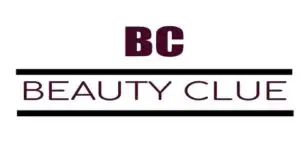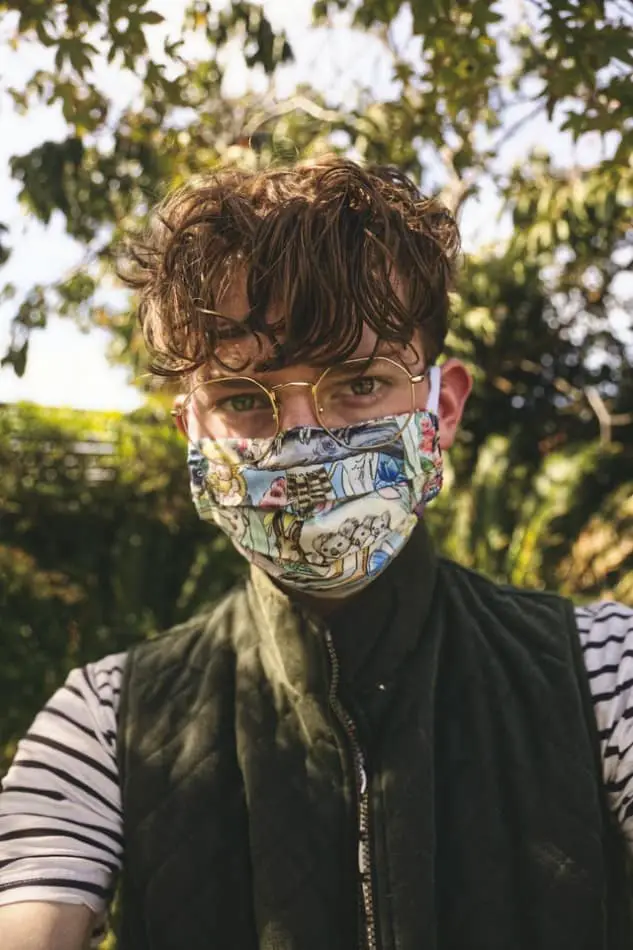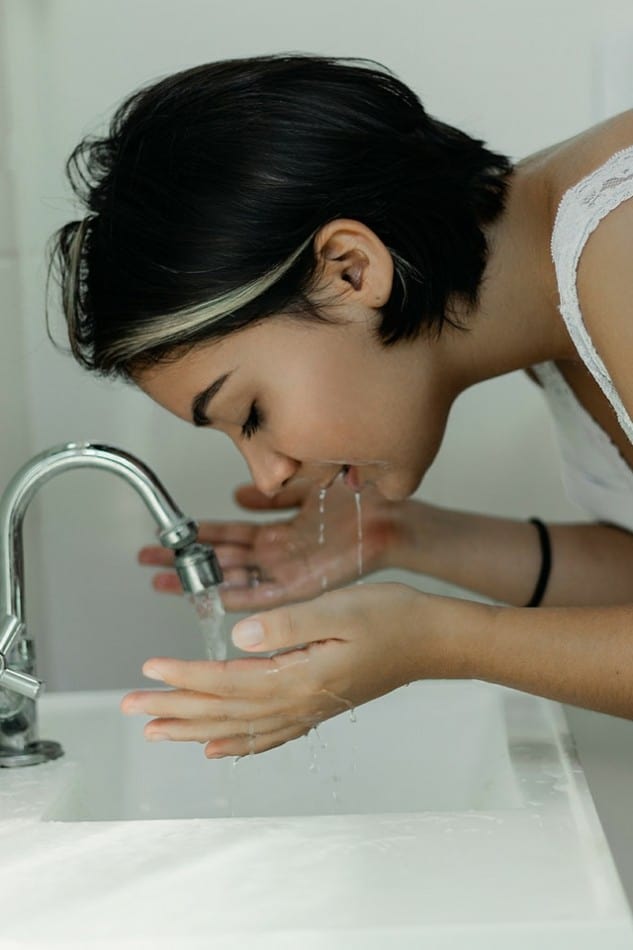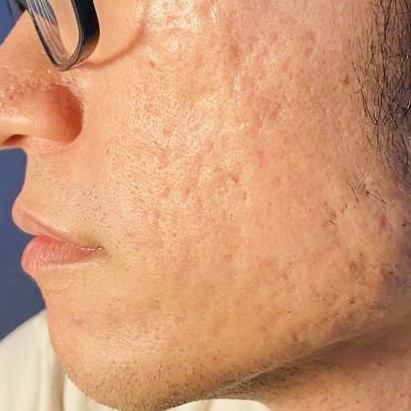The fight against COVID-19 persists as many states mandate the use of face coverings in public. Wearing a mask may be one of the simplest and most effective ways to protect yourself and others from the spread of the virus. The CDC recommends medical-grade PPE for healthcare personnel, but because these supplies are critical and limited, cloth masks are recommended for the general public.
Wearing a mask in public, particularly indoors and in situations where social distancing is difficult, is not just a requirement but a personal responsibility. Cloth masks may help reduce the spread of respiratory droplets carrying the virus, but they only work if both parties wear them.
While wearing a mask may help reduce the spread of the virus, it can lead to other problems. Medical professionals and others who wear masks for hours on end have begun to experience a phenomenon known as “maskne.” Mask-related acne or maskne is very real but the good news is you can treat it without having to sacrifice the safety wearing a mask provides.
What Is Maskne And What Causes It?
Though wearing a mask in public has become expected, prolonged mask use has triggered an unexpected issue: mask-related acne. Dubbed “maskne” on social media, mask-related acne is not an imaginary condition, nor even a new one. Cleveland Clinic Dermatologist Amy Kassouf, MD, comments that it has always been an issue in professions that require regular mask use.
It is only now that the general public is required to wear masks that incidence and awareness of the issue have increased.
Acne develops when the hair follicles become clogged, typically by a combination of excess sebum and dead skin cells. These materials combine to form a plug that can then become contaminated by bacteria.
Wearing a mask can trap warm air against your skin when you breathe or talk, creating a humid environment where these bacteria can thrive. Combined with these warm and humid conditions, the friction and pressure of wearing a mask for hours at a time can increase irritation and trigger acne.
How Do I Prevent Mask Acne (Maskne)
What makes the coronavirus so difficult to control is the fact that anywhere from 25 to 80 percent of those who carry it are unaware. Because asymptomatic carriers have the potential to spread the virus quite rapidly, wearing a mask is an important preventive measure. As you don your mask for the protection of others, follow these simple steps to protect your skin against maskne:
- Wash your face daily with a gentle oil-free cleanser and rinse with lukewarm water. Let your skin dry completely before donning your mask.
- Apply a fragrance-free moisturizer after cleansing to reduce friction and protect your skin’s natural moisture barrier. Look for moisturizers that contain hyaluronic acid, ceramides, or dimethicone.
- Avoid wearing makeup and other heavy skincare products under the mask that might contribute to clogging your pores and increasing breakouts.
- When using cloth masks, wash the mask after each use by using a fragrance-free detergent and skipping the fabric softener. Make sure the mask is completely dry before use.
- Keep several masks on hand so you always have a clean one to wear and give your skin a break to breathe when you’re outside or away from other people.
As medical professionals are wont to say, prevention is the best medicine. Following the tips above may help you avoid the effects of mask-related acne but even if you do develop it, know it can be treated.
Proven Face Mask Acne Treatment
Treatments for acne are typically designed to reduce inflammation, speed skin cell turnover, and reduce oil production while fighting the bacteria that cause acne. Treating maskne is no different. Depending on the severity of your acne, your skin may benefit from simple spot treatment to target blemishes or you may need something more comprehensive like an oral medication.
Here are some of the most effective treatments for mask-related acne:
- Benzoyl Peroxide – Often used as a spot treatment for mild acne, benzoyl peroxide acts as a drying agent that helps reduce the number of acne-causing bacteria on the skin’s surface.
- Retinoids – Available as topical and oral treatments, retinoids are derived from vitamin A and treat acne by preventing the hair follicles from clogging. These usually require a prescription.
- Oral Antibiotics – Typically used in combination with topical acne treatments like retinoids or benzoyl peroxide, oral antibiotics kill excess bacteria.
- Oral Contraceptives – Contraceptives that combine estrogen and progesterone are sometimes recommended for hormonal acne and acne that worsens during menstruation.
- Spironolactone – An alternative to oral contraceptives, spironolactone helps treat hormonal acne caused by excess androgens.
- 1-ounce tube of Neutrogena Rapid Clear Stubborn Acne Spot Treatment Gel with maximum-strength 10% benzoyl peroxide acne medication to help fight acne and prevent future breakouts for clearer looking skin
- This effective acne-fighting spot gel is clinically proven to rapidly reduce the size and redness of stubborn acne in just 2 hours and actively fights breakouts, for continuous improvement in skin's appearance throughout the day
- Its maximum strength formula contains 10% benzoyl peroxide, the acne medication dermatologists recommend most for clearer skin without a prescription
- From a dermatologist recommended brand, this maximum-strength daily stubborn acne treatment is specially formulated for acne-prone skin to help manage acne and clear breakouts
- Cleanse skin thoroughly before applying acne pimple spot treatment gel then proceed to cover affected area with a thin layer of acne gel 1 to 3 times daily
* As an Amazon Associate I earn from qualifying purchases.
Though the fight against COVID-19 is expected to be a long one, there are simple things you can do on a daily basis to help protect yourself and others. Wearing a face mask may be uncomfortable at times and it may contribute to skin issues like maskne, but the pros outweigh the cons. Do your part as a responsible citizen by wearing your mask, knowing that while maskne may be real, it can be treated.
https://www.cdc.gov/coronavirus/2019-ncov/hcp/respirator-use-faq.html
https://www.cdc.gov/coronavirus/2019-ncov/prevent-getting-sick/about-face-coverings.html
https://health.clevelandclinic.org/the-struggle-with-maskne-is-very-real/
https://www.nhs.uk/conditions/acne/causes/
https://news.llu.edu/health-wellness/suffering-from-breakouts-under-your-mask-how-fight-maskne
https://www.mayoclinic.org/diseases-conditions/acne/diagnosis-treatment/drc-20368048




